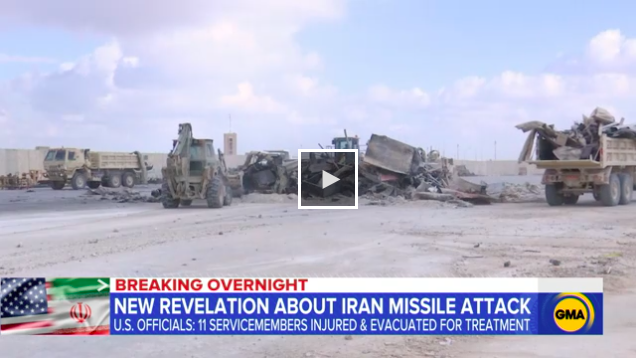Could tensions between the US and Iran spark World War III? The internet and media seem to think so.
The conflict between Iran and America has sparked news headlines such as this one. American service members were injured in a missile attack on a US base in Iraq.
On January 3, 2020, General Qasem Soleimani, the leader of Iran’s Quds Force, was killed by an airstrike ordered by President Donald Trump. Soleimani was seen as the second most powerful person in Iran, second only to Supreme Leader Ayatollah Ali Khamenei. He was in charge of Iran’s military.
Although he was seen as a national hero in Iran, the US Department of Defense considered Soleimani and his troops a foreign terrorist organization. His death brought about massive demonstrations against the United States and warnings about an Iranian retaliation. Later, Iranian attacks on US embassies in Iraq increased tensions between the two countries.
Since the tensions began, the conflict has been in the news almost everyday. It has stirred feelings of anxiety, fear, and confusion. “It definitely made me nervous,” said junior Amanda Jose. “I was scared, and still am, that a war was going to break out.”
Some students believe that there may be a World War III, although not imminently. “There is definitely a possibility of World War III happening in the future,” said Padua junior, Molly Shapiro. “It’s almost inevitable. I just don’t think it will come as soon as we think.”
President Donald Trump’s red line with Iran was that its military or regional interests couldn’t kill an American. If they did, the US would respond forcefully.
Trump followed through on that in late December, after a Tehran-backed proxy militia killed a US contractor in Iraq. The president struck five of the group’s sites, leaving twenty-five members dead and another fifty injured.
And after members of that same militia, Kata’ib Hezbollah, surrounded and breached the US Embassy in Baghdad on New Year’s Eve, setting the front reception room ablaze, Trump decided to kill top Iranian military leader Qassem Soleimani on January 2. This chain of events spiralled into the conflict that has been reported frequently on the news and radio.
Later, an Iranian missile, meant for American bases, brought down a Ukrainian jet, killing all 176 people on board. Iran’s admission of responsibility was seen as an act of de-escalation by many. Iran may have been taking steps to avoid further conflict.
Although the conflict seems to have calmed down for now, Iranian-American relations have not improved. “I don’t think there will be one now because there isn’t as much fighting,” said Minjie Paark. “But that doesn’t mean there isn’t a chance that this rivalry could escalate to a war in the future.”












